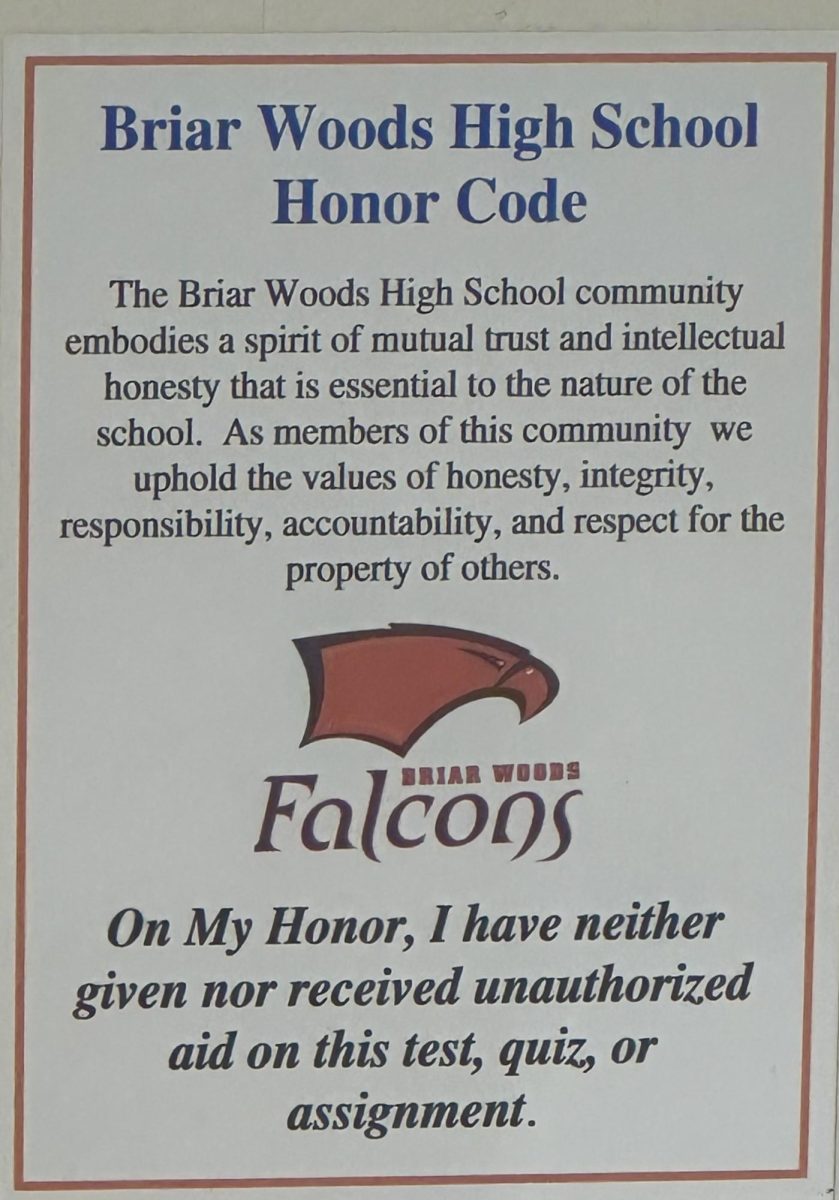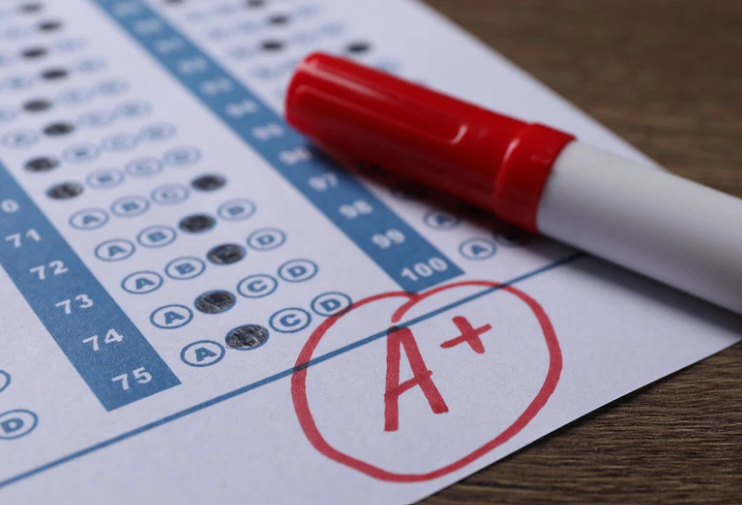After a grueling math test, every student seems to agree it was impossible, some even say the material was never even taught in the first place. With rising frustration, the question arises: How far is too far to succeed? Is cheating understandable, or even justifiable? Grades hold a weight that your future hangs onto, and rules set against academic dishonesty pose another pressure to students who may not need the extra eyes watching out.
The Briar Woods community is built with a foundation of trust and integrity within students and teachers. To uphold similar values of honesty, responsibility, and respect, honor code serves as a general guide to everyone in the school. It states, “On My Honor, I have neither given nor received unauthorized aid on this test, quiz, or assignment.” This commitment is reinforced through expectations and eventual consequences for infringing on such through cheating, plagiarism, or theft.
Even with the ramifications for cheating, some continue to bypass the rules anyways. For one anonymous student, breaking the honor code was a decision made without forethought of the consequences. Looking back, they explained how their decision to cheat, hopefully to keep them ahead, ultimately did leave them in a worse place. Although seemingly for reasons different than expected.
”Honor code has a time and place,” they reflect, “But cheating shouldn’t be reformed with punishment.” To put it simply, fear is not the answer. Instead, simply more support for any student in a situation like theirs could have been more beneficial.
On the contrary, another student who continuously complies with the honor code, sees it in a different light, almost as a moral compass, that when followed can positively influence those under it. “I feel as if when I’m working towards what I truly want to do in the future, this all counts” shared from current Briar Woods student, Ameena Chowdhury. Even with the possible flaws within these key principals, there is still a hope within them for some students.
From a teacher’s perspective, honor code is often viewed positively, as it can help hold balance in the classroom. Some teachers may strongly defend the policy and everything that entails to ensure fairness to students and fairness at school. Meanwhile, others disagree with the level of severity of the following consequences. While it is generally understandable for the student to receive a zero on the assignment or even a call home, some think it is too far for high schools to include the incident on your permanent records, later seen by colleges. In college the punishments do not disappear, but in fact get harsher. According to stanford magazine, the usual punishment for cheating is “one quarter’s suspension, a $100 fine, 40 hours of community service and a permanent record of the violation in their confidential file.” If things only get harder through further education, should a highschool level follow through similarly?
The reality that these interviews bring light to is clear: honor-code and academic dishonesty significantly influence the way students act. Subsequently, academic dishonesty is deeper, with roots in academic pressure felt from others and by the possibly overwhelming demands of school. If not for a large focus on possibly too high academic standards, would cheating still happen? Having less cheating, would honor code still be that necessary? But more importantly, without honor code, would those seemingly positive influences be attributed from it further on?
Perspectives on the topic vary through the school, some teachers and students defend the importance of preventing academic dishonesty, while others question the liability and effectiveness of its consequences. Either way, honor code continues to be a topic on students and teachers’ minds, and an important one at that.








